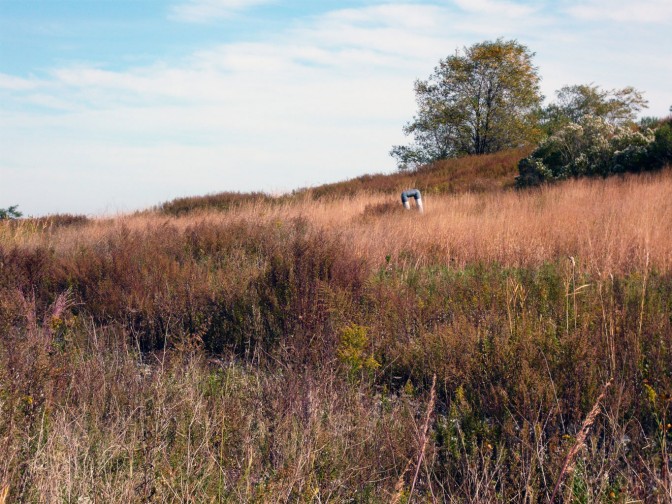Tags: history
Virtual Tour: Leachate Treatment Plant
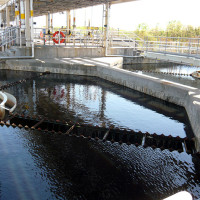
Join Mr. Ted Nabavi, Director of Waste Management Engineering at DSNY, for a behind-the-scenes tour of the Fresh Kills Landfill Leachate Treatment Plant. Leachate, a landfill by-product, is created when water seeps through solid waste. Leachate treatment includes biological and chemical treatment to remove harmful constituents so the treated water can be safely discharged.
...MORENorth Park Construction Virtual Tour

Join us for a special tour of the construction at North Park Phase 1, the first Freshkills Park project to be built within the former Fresh Kills Landfill boundary. See the progress on building the bird tower and the wetland observation deck as well as the spectacular views of Main Creek.
...MOREWalk up North Mound
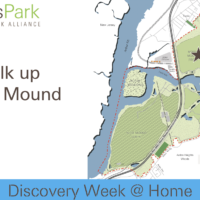
At 2,200 acres, Freshkills Park is almost three times the size of Central Park and the largest park to be developed in New York City in over 100 years. It also has a significant history as the site of the Fresh Kills Landfill, which was the largest landfill in the world before closing in 2001.
...MOREWomen’s History, New York, and Park Statues
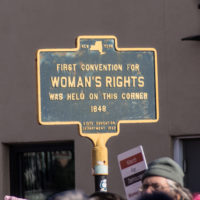
This year, America reflects on the centennial anniversary of the 19th amendment, which gave women the right to vote. New York State is the birthplace of the formal women’s rights movement and many prominent suffragettes. Recently, in recognition of the need to celebrate these women and more generally, to erect more statutes honoring women, New York City is designing and installing statutes of prominent women.
...MORENew York City’s Newest Landfill-to-Park

It is an exciting time for landfill-to-park projects in New York City. In addition to Freshkills Park’s forthcoming North Park Phase One development, the city saw its largest state park to date open in July on top of two former landfills.
...MOREInteractive Site Map Provides Snapshot of Freshkills Park
As Freshkills Park undergoes its long transformation from landfill to public greenspace, access remains limited and it can be challenging to convey to the public all of the things going on inside the park’s boundaries. The Freshkills Park Development team has created an interactive map to serve as a virtual tour of the park project.
...MOREThe Last Barge to Fresh Kills Landfill
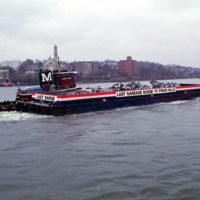
This month marks the anniversary of the Fresh Kills Landfill closing in 2001. The last barge of municipal solid waste arrived on March 22, 2001, 53 years after landfill operations began. Over the years, Fresh Kills had steadily become New York City’s primary landfill.
...MOREBushwick-Inlet Park and How Community Advocacy Can Shape NYC’s Parks
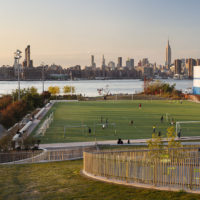
In November 2016, Mayor de Blasio reached an agreement to acquire the 11-acre CitiStorage site on the Williamsburg waterfront for $160 million. This parcel was the final piece needed to complete the 27-acre Bushwick-Inlet Park promised to North Brooklyn residents as part of the 2005 Rezoning Action.
...MOREA Park Many Hands Have Built: Understanding Freshkills as Maintenance Art
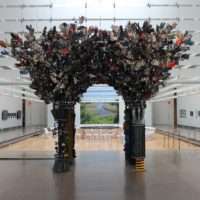
Mierle Laderman Ukeles first toured Fresh Kills Landfill in 1977. She had just been appointed the New York Department of Sanitation’s first (and only) Artist-in-Residence. At that time, there were landfills in every borough except Manhattan, and Fresh Kills was known as the largest municipal landfill in the world.
...MOREFreshkills Park, Fifteen Years after Landfill Closure
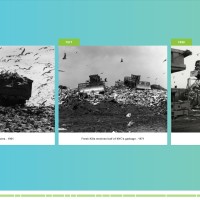
Fifteen years ago this week, the final barge of household garbage arrived at Fresh Kills Landfill. To celebrate this milestone, the website’s new interactive landfill-to-park timeline illustrates almost 100 years of changes in the area.
The last barge to Fresh Kills marked the end of 53 years of landfill operations.
...MORECapturing Change: Interview with Mariel Villeré
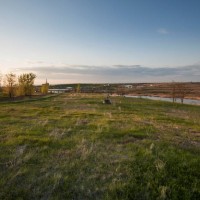
Just as the sun is beginning to think about setting, Mariel Villeré meets with small groups of photographers in a parking lot outside of the Freshkills Park site. As the park’s Manager for Programs, Arts and Grants, she began inviting people to tour and document the changing landscape in 2014.
...MOREFrom Behind the Mounds: Abandoned Ship Graveyard in Our Backyard
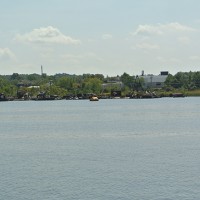
Distant cousins of the Titanic are lying offshore just south of Freshkills Park’s West Mound. According to some, the Arthur Kill Ship Graveyard is an historical and haunted maritime marvel, ranking among the top ten of boat graveyards and separately, of out-of-the-way NYC curiosities.
...MOREGowanus Canal Cleanup
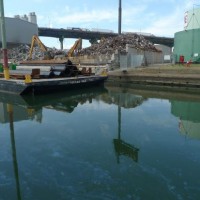
The Environmental Protection Agency has finalized its cleanup plan for Gowanus Canal. The Brooklyn Canal, bound by Park Slope, Cobble Hill, Carroll Gardens and Red Hook, was declared a Superfund site in 2010 and communities have long been pushing for its cleanup.
...MOREComing this Fall to MCNY: “From Farm to City: Staten Island 1661-2012”
On September 15, 2012, the Museum of the City of New York will inaugurate an exhibition entitled From Farm to City: Staten Island 1661-2012. Through the display of a treasure trove of maps, photographs and objects, the exhibit will explore Staten Island’s rich 351 year history and it’s transformation from a rural to urban landscape.
...MOREHow building subways helps build our parks
As work on Manhattan’s Second Avenue subway line progresses, those viewing the massively scaled operation may wonder, “where does all the excavated dirt and rock go?” In the past, the ‘muck’ from expanding subway lines and other construction projects has contributed to the building of Ellis Island, Governors Island and Battery Park City, among other city landmarks – including the expansion of the Manhattan shoreline.
...MOREAncient Roman landfill a model for modern-day reclamation
A recent look at a centuries-old landfill – the eighth hill of Rome – presents new insight into the variety of uses and cultural identities reclaimed landfills today might strive toward. On Places, architect Michael Ezban explores the history and current status of Monte Testaccio as an integral part of the Roman urban fabric.
...MOREGeeky Garbage
This Monday Gelf Magazine, an NYC-based independent webzine “looking over the overlooked”, will host Geeky Garbage, a discussion about one of the most overlooked aspect of our daily lives — waste. On hand will be former Freshkills Park Talks lecturers Robin Nagle (DSNY anthropologist-in-residence) and Howard Warren (expert on the Barren Island/Dead Horse Bay), with Max Liboiron, a trash artist and pollution activist.
...MORERecycling Reconsidered
Our friends at Discard Studies highly recommend this Thursday’s book launch for Samantha MacBride, author of the recently released Recycling Reconsidered: the Present Failure and Future Promise of Environmental Action (MIT 2012). The listing notes that Samantha’s book “offers a critical yet supportive appraisal of the historical development of recycling in the United States, looking at both materials flows and social significance of this meaningful ecological activity”.
...MOREMarty Bellew on Fresh Kills and other NYC landfills
Tuesday night’s talk at the Arsenal by Marty Bellew was a terrific history of landfills in New York City, culminating with the story of Fresh Kills. The context of other landfills really brought home the outsize scope of operations at Fresh Kills–no other site in the city even came close to the same acreage and garbage volume.
...MORENext Freshkills Park Talk: Tomorrow, Nov. 29
The Freshkills Park Talks lecture series continues tomorrow evening, at the Arsenal in Central Park, with Martin Bellew, the man responsible for ensuring environmental compliance during the closure of the Fresh Kills Landfill. Mr. Bellew began working for the New York City Department of Sanitation in 1983 and worked his way up to oversee the closure of several of the city’s incinerators and landfills.

